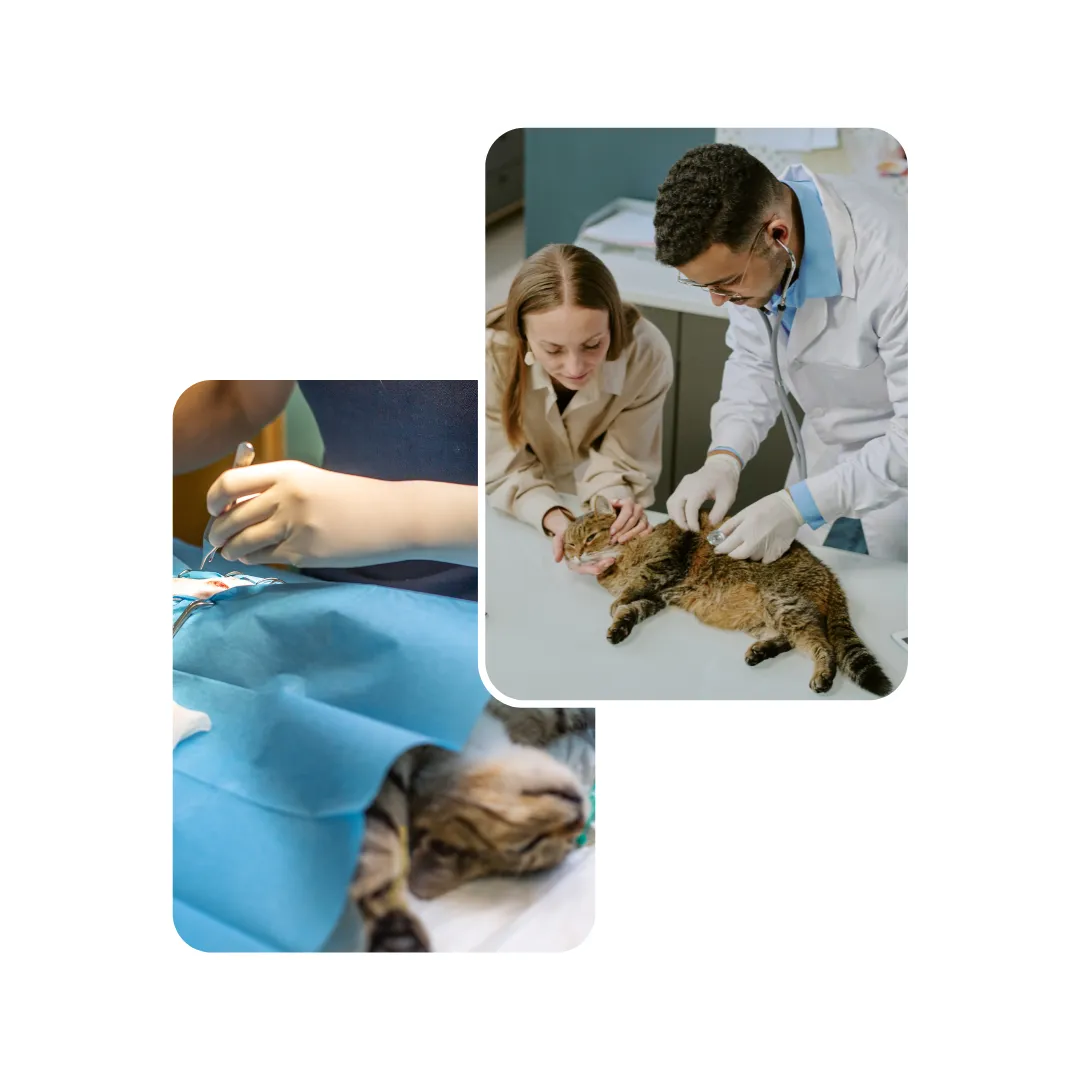
Cats may need surgeries for many reasons. Some surgeries are preventive, like neutering or dental extractions, while others are urgent, such as treating accidents, fractures or life-threatening infections. Tumor removal, bladder stone surgery and exploratory surgeries may be needed to diagnose or resolve internal problems. Surgeries is often the only way to restore your cat’s health when other treatments do not work.

Cats that may need surgery often show:
If your cat is limping, crying out or avoiding movement, it may be a sign of an injury or internal issue that requires surgical treatment.
Cats with bladder stones, urinary blockages or intestinal obstructions often strain in the litter box without success. These conditions can be fatal if not treated with surgeries.
If a wound does not close or keeps getting infected, surgical cleaning or repair may be necessary to prevent further complications.
A lump under the skin could be a tumor, abscess or cyst. Surgery may be needed to remove and test it before it becomes worse.
Falls, car accidents or fights can cause fractures or deep wounds. Orthopedic surgery or wound repair is often the only way to help your cat heal properly.
These may be signs of internal bleeding, twisted intestines or other emergencies that require immediate cat surgeries to save your pet’s life.
Cat surgeries is a medical procedure done under anesthesia to treat health problems, from routine neutering to complex emergency operations.
Yes. With modern anesthesia, advanced equipment, and professional monitoring, surgery is very safe for cats.
If your cat has a lump, broken bone, difficulty urinating or ongoing pain that does not improve with medicine, your vet may recommend surgery.
It depends on the type of cat surgery. Minor procedures like neutering heal in about a week, while orthopedic surgeries may take several weeks.
No. Cats are under anesthesia and pain medication is given before and after surgery to ensure comfort.
You can click the Appointment button on our website or call us directly. We’ll explain the process and guide you through pre-surgery and aftercare steps or you can walk in to out vet.
Your pet deserves expert care – Subscribe now for trusted tips and updates from our pet experts.
